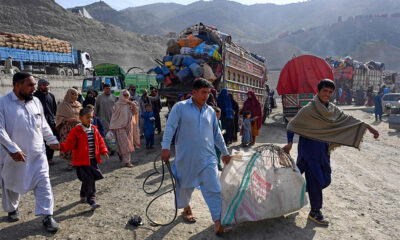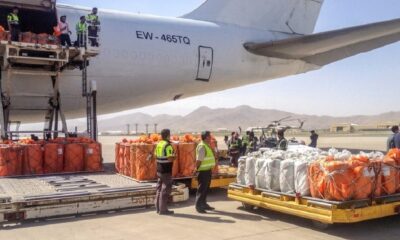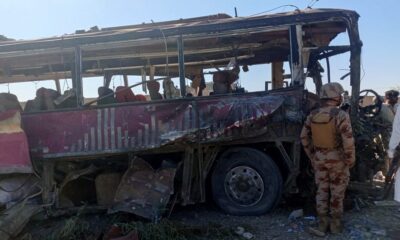COVID-19
‘Monumental tragedy of epic proportions unfolding across India’
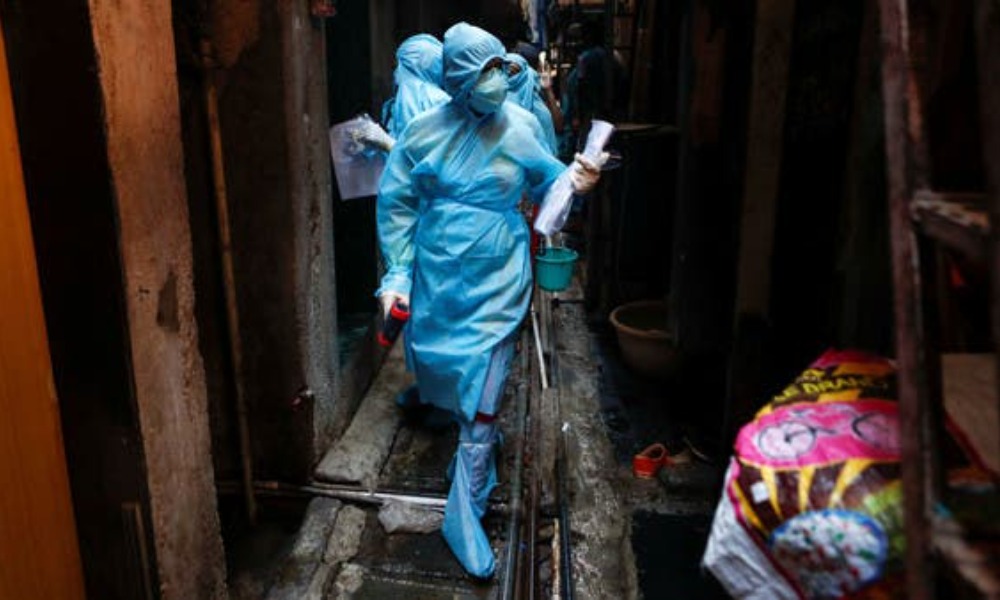
India reported 1,761 deaths from COVID-19 overnight, its highest daily toll, with large parts of the country now under lockdown, Reuters reported.
This comes as the country battles a second wave that has left people fighting for hospital beds, oxygen and medicines.
The world’s second most populous country is grappling with its biggest public health emergency after it lowered its guard when coronavirus infections fell to a multi-month low in February, health experts and officials say.
On Tuesday, the health ministry reported 259,170 new infections, the world’s highest daily rate. It has reported daily infections above the 200,000 mark for six days.
Total coronavirus cases in India are now at 15.32 million, second only to the United States.
Reuters reported that Delhi, the capital city which has seen a surge in cases, began a six-day lockdown late on Monday that officials hope will slow the virus transmission and relieve the pressure on the health infrastructure.
People in Delhi and in towns of Uttar Pradesh, India’s most populous state, put out desperate calls for help on Twitter, asking for assistance getting their families into hospitals. Others reported dire shortage of oxygen and the anti-viral drug Remdesivir.
“(A) monumental tragedy of epic proportions is unfolding across India. No hospital beds, no oxygen, no vaccination,” said Manish Tewari, an opposition lawmaker, on Twitter.
India has lost 180,530 people to the disease, still quite a distance from the 567,538 deaths reported in the United States. But experts have warned that the official death toll does not reflect ground reality and that it could sharply rise as doctors struggle to cope with the pressure, Reuters reported.
“The huge pressure on hospitals and the health system right now will mean that a good number who would have recovered had they been able to access hospital services may die simply because of this,” said Gautam I. Menon, a professor at Ashoka University.
Several major cities are already reporting far larger numbers of cremations and burials under coronavirus protocols than official COVID-19 death tolls, according to crematorium and cemetery workers, the media and a review of government data. read more
Reuters Bhramar Mukherjee, a professor of biostatistics and epidemiology at the University of Michigan, said many parts of India were in “data denial”.
“Everything is so muddy,” she said. “It feels like nobody understands the situation very clearly, and that’s very irksome.”
Stung by criticism that the government had failed its people, Prime Minister Narendra Modi ordered vaccinations on Monday for anyone above the age of 18 to be given from May 1.
So far, 108.5 million people have received a first dose of the COVID-19 vaccine, according to a government portal, a small portion of India’s 1.3 billion population.
Reuters also reported the U.S. Centers for Disease Control and Protection has said all travel should be avoided to the country, while Britain said it will add India to its travel “red-list”.
COVID-19
WHO declares end to COVID global health emergency

The World Health Organization said Friday that COVID-19 no longer qualifies as a global emergency, marking a symbolic end to the devastating coronavirus pandemic that triggered once-unthinkable lockdowns, upended economies and killed millions of people worldwide.
The announcement, made more than three years after WHO declared the coronavirus an international crisis, offers some relief, if not an ending, to a pandemic that stirred fear and suspicion, hand-wringing and finger-pointing across the globe, AP reported.
The U.N. health agency’s officials said that even though the emergency phase was over, the pandemic hasn’t finished, noting recent spikes in cases in Southeast Asia and the Middle East.
WHO says thousands of people are still dying from the virus every week, and millions of others are suffering from debilitating, long-term effects.
“It’s with great hope that I declare COVID-19 over as a global health emergency,” WHO Director-General Tedros Adhanom Ghebreyesus said.
“That does not mean COVID-19 is over as a global health threat,” he said, warning that new variants could yet emerge. Tedros noted that while the official COVID-19 death toll was 7 million, the real figure was estimated to be at least 20 million.
Tedros said the pandemic had been on a downward trend for more than a year, acknowledging that most countries have already returned to life before COVID-19.
He bemoaned the damage that COVID-19 had done to the global community, saying the pandemic had shattered businesses, exacerbated political divisions, led to the spread of misinformation and plunged millions into poverty.
When the U.N. health agency first declared the coronavirus to be an international crisis on Jan. 30, 2020, it hadn’t yet been named COVID-19 and there were no major outbreaks beyond China.
More than three years later, the virus has caused an estimated 764 million cases globally and about 5 billion people have received at least one dose of vaccine.
In the U.S., the public health emergency declaration made regarding COVID-19 is set to expire on May 11, when wide-ranging measures to support the pandemic response, including vaccine mandates, will end. Many other countries, including Germany, France and Britain, dropped most of their provisions against the pandemic last year.
When Tedros declared COVID-19 to be an emergency in 2020, he said his greatest fear was the virus’ potential to spread in countries with weak health systems.
Most recently, WHO has struggled to investigate the origins of the coronavirus, a challenging scientific endeavor that has also become politically fraught.
COVID-19
COVID-19 in Iran: Nearly 900 new cases, 24 deaths recorded

The Iranian health ministry announced on Sunday that more than 890 new cases of COVID-19 have been identified across the country during the past 24 hours, adding that 24 patients have died in the same period of time, Fars News Agency reported.
“A sum of 891 new patients infected with COVID-19 have been identified in the country based on confirmed diagnosis criteria during the past 24 hours,” the Iranian Health Ministry’s Public Relations Center said on Sunday, adding, “454 patients have been hospitalized during the same time span.”
The ministry’s public relations center said 611 people infected with COVID-19 are in critical condition.
COVID-19
China says 200 million treated, pandemic ‘decisively’ beaten

China says more than 200 million of its citizens have been diagnosed and treated for COVID-19 since it lifted strict containment measures beginning in November.
With 800,000 of the most critically ill patients having recovered, China has “decisively beaten” the pandemic, according to notes from a meeting of the ruling Communist Party’s all-powerful Politburo Standing Committee presided over by President and party leader Xi Jinping, AP reported.
China enforced some of the world’s most draconian lockdowns, quarantines and travel restrictions and still faces questions about the origins of the virus that was first detected in the central Chinese city of Wuhan in late 2019. Heavy-handed enforcement prompted rare anti-government protests and took a heavy toll on the world’s second-largest economy.
The official Xinhua News Agency quoted Xi as saying that policies to control the outbreak had been “entirely correct.” The abrupt lifting in November and December of the “zero COVID” policy that had sought to eliminate all cases of the virus led to a surge in infections that temporarily overwhelmed hospitals.
Case numbers have since peaked and life has largely returned to normal, although international travel in and out of China has yet to return to pre-pandemic levels.
China is now transitioning to a post-pandemic stage after a fight against the outbreak that was “extraordinary in the extreme,” Xinhua said.
The government will continue to “optimize and adjust prevention and control policies and measures according to the times and situations with a strong historical responsibility and strong strategic determination,” Xinhua said.
-
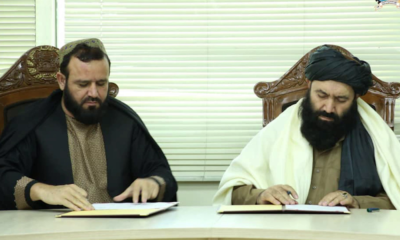
 Latest News4 days ago
Latest News4 days agoMoRRD signs deal for Wakhan road construction
-
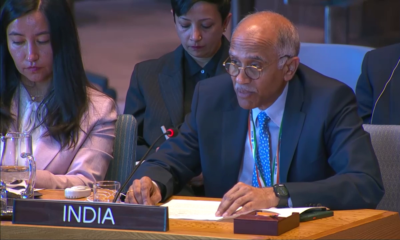
 Latest News5 days ago
Latest News5 days agoIndia says ‘special’ ties have been foundation of engagement with Afghanistan
-

 Regional4 days ago
Regional4 days agoPakistan military ends train standoff, says 21 hostages and four troops killed
-

 International Sports4 days ago
International Sports4 days agoBayern’s Harry Kane sets his sights on lifting FIFA Club World Cup trophy
-

 Sport5 days ago
Sport5 days agoCricket Ireland cancels Afghanistan series for ‘financial reasons’
-

 Latest News4 days ago
Latest News4 days agoPakistan Army claims Balochistan train attack orchestrated from Afghanistan
-
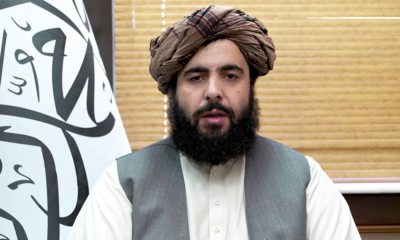
 Latest News5 days ago
Latest News5 days agoIEA dispels Pakistan’s remarks on Daesh in Afghanistan as ‘baseless’
-

 Regional3 days ago
Regional3 days agoSyria keeps role for Islamic law in 5-year transition


